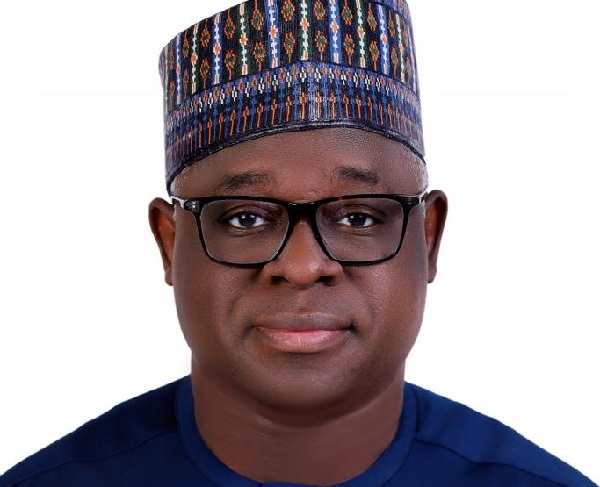By Frank Ikpefan,The Nation
Copyright thenationonlineng

Chairman, Senate Committees on Trade and Investment, and Rules and Business, Sen Sadiq Umar has urged African youths to take the lead in unlocking the continent’s economic potential through leadership, trade, and strategic collaboration under the African Continental Free Trade Area (AfCFTA).
Speaking at the 2025 Africa and the Middle East Senate Association (AMESA) Summit, hosted by the Junior Chamber International (JCI) Senate Association yesterday in Abuja, Sen Umar underscored the importance of youth leadership in actualising the promises of AfCFTA and shaping a future of shared prosperity across Africa and the Middle East.
The senator praised JCI for over a century of nurturing young leaders and promoting entrepreneurship across more than 140 countries.
He said: “The JCI Senate Association has become a vital pillar in sustaining this vision—offering mentorship, service, and strategic direction to ensure tomorrow’s leaders are equipped to serve humanity with integrity and innovation.”
He lauded JCI’s alignment with the summit theme, which focused on AfCFTA, emerging business opportunities, and youth leadership in driving sustainable development.
READ ALSO: How to curb Corruption in Nigeria
With over 60per cent of Africa’s 1.4 billion population under the age of 25, Umar described the continent as not only the youngest in the world but also home to the fastest-growing labor force.
“By 2035, Africa will contribute more people to the global workforce annually than the rest of the world combined,” he said.
Despite this advantage, intra-African trade accounts for just 15per cent of total trade, compared to 68per cent in Europe and 59per cent in Asia.
He cited World Bank projections which estimate that the AfCFTA could lift 30 million Africans out of extreme poverty and increase her income by $450 billion by 2035.
Highlighting Nigeria’s leadership role, the senator emphasized the country’s potential as a gateway for trade and investment in Africa.
“With a population of over 220 million, a vibrant entrepreneurial ecosystem, and abundant resources, Nigeria is strategically positioned to lead Africa’s economic transformation,” he stated.
He pointed to reforms under the administration of President Bola Tinubu, including efforts in digital economy expansion, infrastructure development, and trade facilitation, all aimed at attracting investment and supporting local businesses.
Notably, Nigeria’s technology and fintech sector has attracted over $2 billion in foreign investment in the past five years, solidifying its status as a hub of innovation.
The senator emphasized the alignment between JCI’s mission and the goals of the AfCFTA.
“Through leadership training, entrepreneurship, community action, and international cooperation, JCI is building the foundation that AfCFTA requires—young leaders who are skilled, innovative, and globally connected,” he noted.
He encouraged JCI members and youth leaders to harness these platforms to create impact in: “Business and job creation, Inclusive community development, Cross-border trade and collaboration, Technological innovation.”
Sen Umar described trade as more than the movement of goods, but the exchange of ideas, opportunities, and hope.
He called for increased collaboration across key sectors.
“Agriculture and agribusiness, where Africa holds 60% of the world’s uncultivated arable land, Renewable energy, to power Africa’s green future, Technology and digital trade, driven by African startups, Infrastructure, to connect markets and people across borders.
“Nigeria, alongside its African partners, must continue to lead trade missions that reduce barriers, expand market access, and attract strategic investment.
“The AfCFTA is not just a policy document—it is a call to action. Let us commit to building businesses, leading with integrity, and ensuring that economic growth leads to social inclusion and sustainability,” he said.
He stressed the importance of cross-border partnerships and innovation in driving the next phase of Africa’s development.
Umar reaffirmed the commitment of the National Assembly to supporting trade and investment policies that align with the AfCFTA agenda.
“Together with organizations like JCI, we can build an Africa and Middle East that not only trades with the world but leads the world in trade, innovation, and human development,” he said.
Chairperson of the JCI Nigeria Senate and Chief Host of AMESA 2025, JCI Sen Dupe Ogunbiyi, emphasized the need for strong leadership and partnerships in unlocking Africa’s development potential.
“We have a lot of untapped potential that we must begin to put value to. While the developed world is looking inward, Africa must do the same. We have all the raw materials—both physical and human—that we need,” she said.
Ogunbiyi acknowledged that Africa suffers not from a lack of policies but from weak implementation.
According to her, JCI—present in over 100 countries—focuses on leadership development and works to translate policy into action within organisations and communities.
“What is required for implementation is good leadership, good management, and good followership. If replicated across Africa, we can change the story of the continent,” she added.
Lead Economist for the African Development Bank (AfDB) in West Africa, Jacob Oduor urged African leaders to harness the continent’s vast potential in population, natural resources, and innovation to drive sustainable growth.
Oduor highlighted Africa’s youthful population, extensive arable land, rich natural resources, and growing technological innovation as key assets that remain largely underutilised.
He noted that Africa’s population, currently estimated at 1.5 billion, is projected to reach 2.5 billion by 2050, presenting both opportunities and challenges.
“Africa is the youngest continent, with a median age of 19. That’s a massive market for goods and services, and also a huge labor pool. But if this potential is not harnessed, it becomes a problem—an idle, unskilled youth population is a ticking time bomb,” Oduor added.



